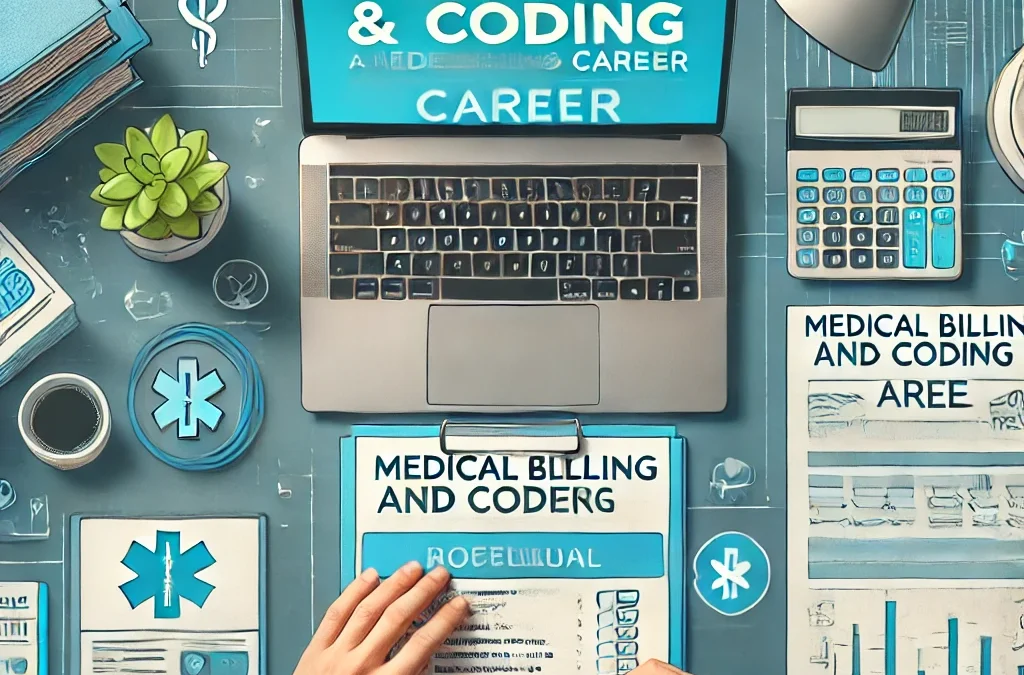How to Start a Medical Billing and Coding Career
Medical billing and coding careers offer flexibility, competitive salaries, and job stability. This guide will walk you through the steps to start your career in this growing field.
Introduction to Medical Billing and Coding Careers
Medical billing and coding professionals translate healthcare services into standardized codes for billing and record-keeping. They ensure that healthcare providers are paid correctly and on time.
Why Choose a Career in Medical Billing and Coding?
This field offers remote work opportunities, career growth, and job security. It’s a great choice for individuals looking for a healthcare career without direct patient interaction.
Essential Skills for Success in the Field
- Attention to detail
- Proficiency in medical terminology
- Knowledge of coding systems (ICD-10, CPT, HCPCS)
- Organizational and time management skills
Educational Requirements and Certifications
Certified Professional Coder (CPC)
The CPC certification, offered by AAPC, focuses on outpatient coding and is widely recognized by employers.
Certified Coding Associate (CCA)
AHIMA offers the CCA certification, which covers both inpatient and outpatient coding practices.
Certified Billing and Coding Specialist (CBCS)
This certification, provided by NHA, is ideal for beginners in billing and coding.
How to Choose the Right Training Program
Look for accredited programs that align with your career goals. Consider programs offering online classes if flexibility is a priority.
Internship and Job Shadowing Opportunities
Internships and job shadowing provide hands-on experience and can help you build valuable connections in the industry.
Creating a Job-Ready Resume and Cover Letter
Your resume should highlight your certifications, relevant skills, and any practical experience. Tailor your cover letter to each job application to make a good impression.
Where to Find Job Opportunities in Medical Billing and Coding
Explore job boards like Indeed, LinkedIn, and healthcare-specific platforms. Networking with professionals in the field can also open doors to hidden job opportunities.
Preparing for Interviews in the Healthcare Industry
- Research the company and understand their coding needs.
- Practice answering common interview questions.
- Prepare examples of how you’ve applied coding knowledge in real scenarios.
Exploring Remote Work Options
Many employers offer remote positions in medical billing and coding, allowing for greater flexibility and work-life balance.
Career Growth Opportunities
Advanced certifications and specialized training can help you transition into roles such as coding supervisor, medical auditor, or compliance officer.
Conclusion
Starting a career in medical billing and coding requires dedication and preparation. With the right training and certifications, you can build a successful career in this high-demand field.
FAQs
What certifications should I get to start my career?
Consider CPC, CCA, or CBCS certifications for a strong foundation.
Can I work remotely in medical billing and coding?
Yes, many employers offer remote positions in this field.
How do I find job opportunities?
Use online job boards, network with professionals, and explore healthcare career platforms.
Do I need a degree to work in medical billing and coding?
No, a degree is not required, but certifications and formal training are essential.
What are the growth opportunities in this field?
You can pursue roles like medical auditor, coding supervisor, or compliance officer with advanced certifications.


Recent Comments